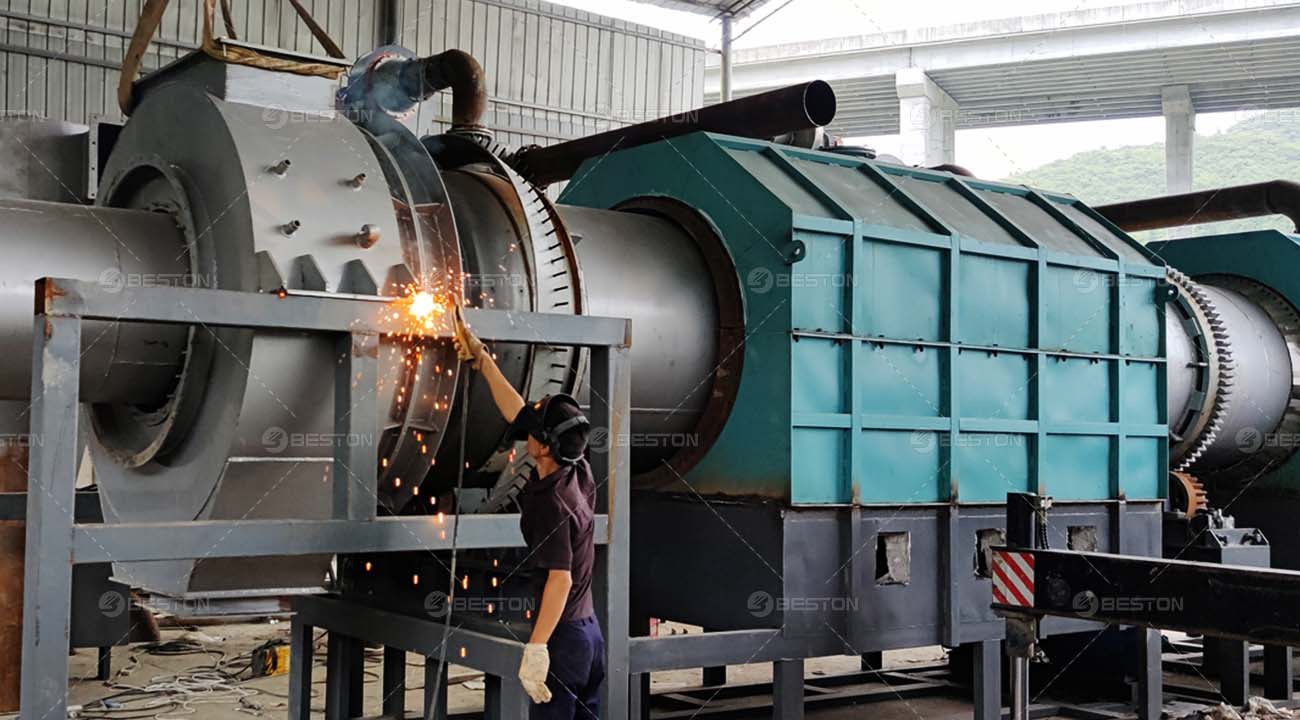Biochar, a carbon-rich material produced from biomass, has garnered significant attention for its multifaceted benefits in agriculture, environmental conservation, and climate change mitigation. The process of producing biochar through a biochar making machine presents a sustainable and profitable investment opportunity. This article delves into the advantages of investing in a biochar making machine, exploring its economic, environmental, and agricultural benefits.
Biochar Making Machine: A Sustainable Investment
Exploring the Biochar Making Process
The biochar making machine utilizes a process called pyrolysis, which involves the thermal decomposition of biomass in the absence of oxygen. This controlled pyrolysis leads to the production of biochar, a stable carbon-rich material.Resource Recovery and Circular Economy
Biochar production embodies the principles of the circular economy, where organic waste is transformed into a valuable resource. The process not only mitigates waste but also recovers valuable nutrients from biomass.Environmental Advantages over Conventional Methods
Compared to conventional biomass burning and landfilling, biochar production through a biochar making machine significantly reduces greenhouse gas emissions and contributes to sustainable waste management.Economic Benefits of Investing in a Biochar Making Machine
High-Value Product and Market Demand
Biochar is a high-value product with a wide range of applications, creating a demand in various industries such as agriculture, environmental remediation, and energy production.Cost-Effectiveness and ROI
The cost-effectiveness of biochar production stems from the utilization of low-cost biomass feedstock and the potential to generate revenue from biochar sales.Diversification of Income Streams
Investing in a biochar making machine allows for diversification of income streams, as biochar can be sold to various industries or used for on-site applications.
Environmental Advantages of Biochar Production
Carbon Sequestration and Climate Change Mitigation
Biochar's stable carbon structure allows it to sequester carbon in the soil for an extended period, helping to mitigate climate change by reducing carbon dioxide in the atmosphere.Soil Improvement and Nutrient Retention
Biochar enhances soil structure, water retention, and nutrient availability, promoting healthier and more productive soils for sustainable agriculture.Reduced Greenhouse Gas Emissions
The production of biochar releases significantly lower levels of greenhouse gases compared to conventional biomass burning and waste disposal methods.Biochar Applications and Versatility
Agricultural Benefits and Crop Yield Enhancement
Biochar application in agriculture improves soil fertility, nutrient retention, and water holding capacity, leading to increased crop yields and reduced reliance on synthetic fertilizers.Remediation of Contaminated Soils
Biochar's porous structure and high surface area make it an effective adsorbent for remediation of contaminated soils, capturing pollutants and heavy metals.Livestock and Environmental Benefits
Biochar supplements in livestock feed can improve digestion and reduce methane emissions, contributing to sustainable livestock farming and environmental conservation.Future Prospects and Sustainable Development
Expanding Biochar Utilization
With ongoing research and technological advancements, the potential applications of biochar continue to expand, presenting more opportunities for investment and impact.Policy Support and Incentives
Government policies and incentives that promote sustainable agricultural practices and carbon sequestration further drive the demand for biochar production.Paving the Way for a Greener Future
Investing in a biochar making machine aligns with sustainable development goals, contributing to environmental preservation, resource efficiency, and climate change mitigation.In conclusion, investing in a biochar making machine offers a plethora of benefits, ranging from economic gains to environmental conservation. The production of biochar through pyrolysis not only addresses waste management challenges but also contributes to climate change mitigation and sustainable agriculture. As the world embraces more sustainable and eco-friendly practices, biochar production is poised to play a pivotal role in the transition towards a greener and more sustainable future. By recognizing the potential of biochar and its versatile applications, stakeholders can seize the opportunity to make a positive impact on the environment and society, while also reaping the economic rewards of this innovative and sustainable investment.
Comments
No comments yet. Be the first to react!